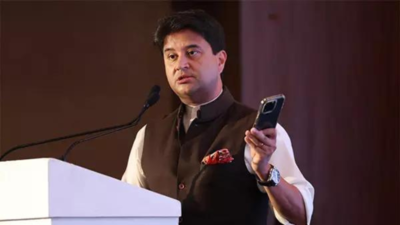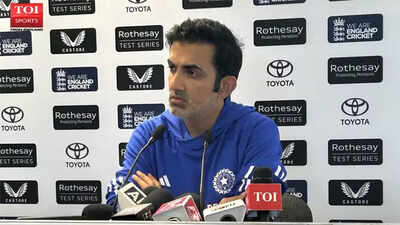‘Duopoly not good’: Telecom minister pushes for competition; Scindia says Moore’s law must apply to data pricing in India

Union Telecom minister Jyotiraditya Scindia on Tuesday said that duopoly is not healthy for any sector and stressed the need for robust competition across the telecom ecosystem, while announcing that guidelines for delicensing 6 gigahertz spectrum for wifi services will be issued before August 15.Speaking at the Broadband India Forum event, Scindia said, “Our job is to provide as many avenues as possible and within each vertical as well, provide intense competition. It’s not good enough having a duopoly of one carrier or two carriers.”At present, the telecom space is dominated by Reliance Jio and Bharti Airtel, while Vodafone Idea has flagged survival concerns in court and state-run BSNL is yet to complete its pan-India rollout of 4G and 5G services.The minister reiterated the government’s focus on equitable access to technologies, including terrestrial fibre, wifi, and upcoming satellite services. “(We) must have competition in every sector,” he said, adding that spectrum will soon be allocated to satellite communication players on an administrative basis, PTI reported.Scindia also highlighted the importance of Moore’s law in telecom economics, where rising volumes should lead to falling prices. “Our responsibility is towards 1.4 billion of our country’s brothers and sisters. Our job is to provide every opportunity to them… to make sure that Moore’s law operates in the economic sphere,” he said.He pointed out that India’s data prices have dropped sharply over the years — from Rs 287 per GB to Rs 9 per GB, or around 11 cents — while the global average is $2.49. “India operates at 5 per cent of the world’s cost. This is the democratisation of technology,” Scindia said, recalling the days when voice calls were charged at Rs 16 per minute, as compared to 0.03 paise now, the news agency reported.Scindia also urged device and chip manufacturers to produce at nominal costs. “We cannot allow devices to become the new digital divide in our country,” he said, adding that the combination of fibre, satellite connectivity and affordable devices can power India’s digital future.Former TRAI chairman RS Sharma, who also spoke at the event, said that the telecom market is nearing a duopoly and suggested exploring more delivery routes for broadband access at affordable prices.





